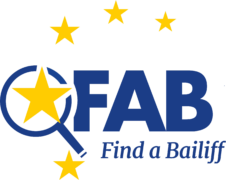Enforcement authorities
Bailiffs’ status
The Judgment Enforcement System in Bulgaria is characterized by its duality – there are State Bailiffs (MoJ employees, assigned to a regional court) and Private Bailiffs (independent professionals who are licensed after passing a qualifying exam). Both are appointed by the Minister of Justice.
The status of State Bailiffs is regulated by The Law on the Judiciary: they are legal professionals who make part of the Bulgarian Regional Court system. Most of State Bailiffs are members of the Association of Bulgarian State Bailiffs which has no regulatory or disciplinary authority.
Activity and profession of Private Bailiffs are regulated by the Law on Private Bailiffs. All Private Bailiffs are members of the Chamber of Private Bailiffs – a self-governing organization that has both regulatory and disciplinary authority.
Both State and Private Bailiffs charge same fees for their activities.
Courts might intervene in the course of enforcement in specifically defined circumstances and as a rule court’s review is carried out in a one-instance proceeding only.
Minister of Justice is charged with the authority to discipline State Bailiffs while Private Bailiffs are disciplined by an independent body, the Disciplinary Committee, to the Chamber of Private Bailiffs.
What can a bailiff do?
Depending on whether you have an enforceable title or not the Bailiff can do for you the following:
If you have an ENFORCEABLE TITLE the Bailiff can perform the following JUDGMENT ENFORCEMENT ACTIVITIES:
- access information on the debtor’s assets from all National registries, as well as information on the debtor’s personal status
- seize, inventory and hold in custody assets of the debtor
- force entry into debtor’s premises if access was not provided
- sell movable and immovable property of the debtor
- attach debtor’s bank accounts
- attach all of the debtor’s receivables on labour and other contracts
- request assistance from the police authorities
- serving all documents accompanying enforcement.
If you don’t have an ENFORCEABLE TITLE the Bailiff can do:
- service of documents on all civil and commercial matters, and by assignment of the court – court documents on civil and commercial cases (Private Bailiffs only).
What can’t a Bailiff do?
In no circumstances the Bailiff may:
- intimidate debtors
- seize assets that do not belong to the debtor
- access information for individuals who are not debtors in a pending enforcement case
- disclose debtors’ personal data to third parties other than creditors.
What are available means of debt collection in Bulgaria?
- Amicable debt collection: by addressing a debt collection agency that generally will communicate with debtor via e-mail, phone or by post trying to make the debtor pay his/her debt voluntarily.
- Fiduciary sale of property: fiduciary sale of property is allowed in Bulgaria. Unlike the mortgage creditors, collateral creditors can sale collateral assets without reverting to courts for a judgment. In some instances, collateral creditors can assign a Bailiff (private only) with the sale of the collateral.
- Judgment enforcement: creditors can revert to courts for issuance of a Payment Order (besides filing a standard claim) that once entered into force will represent an Enforceable Title. Once assigned, the Bailiff can perform all JUDGMENT ENFORCEMENT ACTIVITIES to collect creditor’s claim.
- Insolvency: only available if your debtor is a company or a sole-proprietor. Insolvency claim is filed with the court. All other creditors of the same debtor can join the procedure. Once the debtor is declared insolvent, all judgment enforcement cases are put on hold.



